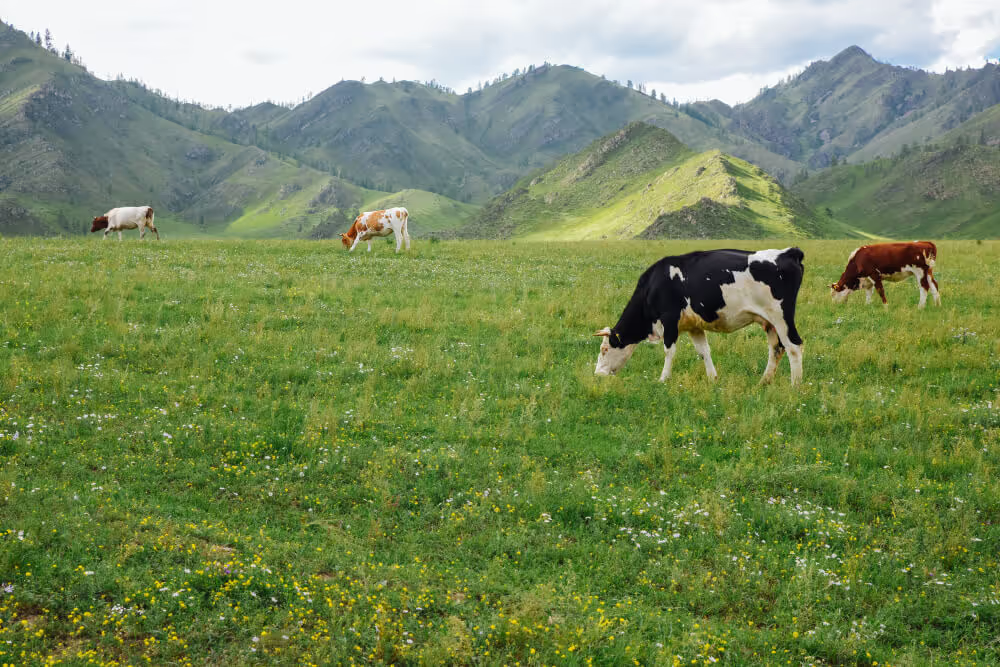Editor’s update: This article has been updated to reflect the European Parliament vote on 17 December 2025 approving a 12-month delay to the EU Deforestation Regulation (EUDR).
In light of the European Commission’s recent proposal to simplify the EU Deforestation Regulation (EUDR), many organisations are asking what this means for them. Particularly those based outside the EU who are still expected to comply in full. To help clarify some of the most pressing questions, we recently hosted the latest session in our EUDR Webinar Series, featuring insights from our Head of Market Development, Anna Roberts.
The discussion explored key challenges for non-EU based organisations, from understanding traceability requirements and managing Due Diligence Statements (DDS) to preparing for shipments that will arrive after the 31 December 2026 deadline. Below, we’ve compiled answers to the most common questions asked during the session - providing clear, practical guidance to help your organisation move forward confidently under the new rules.
EUDR Compliance: Requirements and Responsibilities
- How much traceability is actually needed in practice?
Traceability must extend to the transactional level for each batch of in-scope products and their relevant commodities.
In practice, this means that before a consignment can be exported from or placed on the EU market, the operator must complete due diligence, including tracing each commodity back to its source and checking for the risk of mixing or supply chain circumvention.
There are simplifications for downstream SME operators and traders (i.e., EU businesses buying products already covered by DDS in the EU).
- If the supplier controls the raw materials from harvest through processing and can guarantee full traceability, geo location, legality, and that the wood is deforestation free, is there any other requirement that must be submitted for due diligence to prove EUDR compliance?
When an EU operator / trader buys from non-EU suppliers, the EU operator / trader is responsible for evidencing their due diligence back to source. They can rely on documentation and information from their supplier, but ultimately they need to prove how they, the operator / trader, came to the conclusion that there is no risk of illegality or deforestation / degradation in the supply chain.
If the supplier sources from non low risk countries, then the operator will need to conduct risk assessment and mitigation, paying attention to assessment of supply chain complexity. The European Commission’s guidance document published in August provides a good overview of what this entails on pages 12 and 13.
- One of our suppliers is not giving us EUDR information on the wood we buy until 2026 as they say that's when it comes into force, however we have some shipments leaving us in November to arrive in January. How can we ensure we will be compliant then?
The EUDR obligations apply from 31 December 2026, therefore any shipment of in-scope products arriving in January 2026 must provide DDS reference and verification numbers on the customs declaration. For wood products harvested and placed on the market before or during the transition period, the EU operator can use an exemption code or universal reference number.
If you are unable to obtain the required information from your supplier, you must refrain from placing the relevant products on the EU market or exporting them. Failure to do so results in a violation of the Regulation, which could lead to penalties and goods not clearing customs.
- If we import from the EU and have an upstream DDS, do we still need to provide the geolocations when re exporting back into the EU? I assumed we just passed on the DDS number.
When an EU operator or trader re-imports a product that has an existing upstream DDS number(s) (meaning due diligence was already performed on the products or raw materials), they are not required to provide the geolocation data again as it is referenced in the upstream.
Where the product might have been re-manufactured or mixed with other products by the non-EU supplier, then any part of the product not covered by an upstream DDS, must have a new DDS submitted for it - of which, geolocations are a requirement.
Unfortunately, there is an option when submitting DDS to keep the geolocation(s) confidential. Therefore if the upstream supplier has kept the geolocations confidential, the EU operator re-importing the goods will be unable to submit a DDS with the certainty that they know the point of origin of the goods. Therefore you would need to agree on a way to obtain this information from your suppliers if it is not included in the DDS.
- Can a DDS or set of geolocations be static data for a period of, lets say, 12 months?
Yes. A Due Diligence Statement (DDS) can cover shipments/batches for no longer than 12 months from the time of submission. You can read more about this topic here.
There are 3 limitations to be aware of:
- The supply chain of the product, including the harvest dates should not change. If they do, a new DDS is required
- If any single product covered under the 12 month DDS is found to be non-compliant, all products covered by the DDS are deemed to be non-compliant
- You can only use the DDS for the volume of products declared in it
Northern Ireland and EUDR
- What’s the current process in Northern Ireland, and how are major UK retailers responding?
Under the current Windsor Framework, Northern Ireland is in scope of EUDR. Operators and traders in Northern Ireland are therefore legally bound by the EUDR in the same way as EU-based operators.
In practice, this means that companies should continue to apply full due diligence and be ready to provide or reference valid Due Diligence Statements (DDS) in TRACES NT.
We are observing major UK retailers asking suppliers to ensure that all in-scope products can comply with EUDR in case they end up in the EU, including Northern Ireland.
- What’s the point in following EUDR rules when shipping to Northern Ireland if the UK Government does not appoint a Competent Authority to check in-scope goods?
Although there is not yet a Competent Authority appointed for Northern Ireland (and other EU countries), EUDR obligations still apply in full to operators and traders based there.
If the UK Government delays appointment of a Competent Authority, enforcement may initially be limited, but liability for non-compliance would still exist under EU law. Consequently, companies could face issues when their goods enter the EU market or interact with EU customs systems.
Even without a local Competent Authority, following EUDR rules protects your market access and demonstrates compliance to EU importers and enforcement. Particularly for companies where there is the chance that the goods could be further exported from Northern Ireland, including to other EU countries, it would be wise to ensure goods comply with EUDR.
Using TRACES NT
- Shall companies have a single access account to Traces NT, or can each employee have their own account?
According to the European Commission’s official FAQs (7.29), a single economic operator account within TRACES NT can be used by a natural person or a legal entity.
This single economic operator account has the flexibility to add multiple roles, allowing for different functions, such as submitting data as an operator, trader, or authorised representative, as needed. While the regulation and official documentation do not specify the maximum number of individual users for a single account, this flexibility implies that multiple employees can access the functions of a company's single account.
- What would the volume of a chocolate product be? Would that be cocoa in the product or net weight of chocolate?
Although the DDS quantity refers to the final product’s net mass, the due diligence obligations and information requirements extend only to the relevant commodity that the product contains or has been made using.
In the case of a chocolate bar, due diligence and information requirements must be demonstrated and provided for the relevant commodity (e.g., cocoa, HS 1806), and the net mass of the chocolate bar itself must be declared in the DDS submission.
Get Ahead of Compliance
As the EUDR deadline draws nearer, and with regulatory updates continuing to evolve, building an accurate, end-to-end picture of your supply chain has never been more important. Interu’s platform makes this possible.
Our platform enables companies to trace materials securely, verify supplier data, and demonstrate compliance with confidence, all within a single system that reduces administrative burden and risk. Whether you’re based in the EU or not, Interu gives you the tools to meet EUDR obligations while protecting your market access and reputation.
Request a demo or contact our team today to see how Interu can help your organisation prepare for EUDR.


.avif)

.avif)
